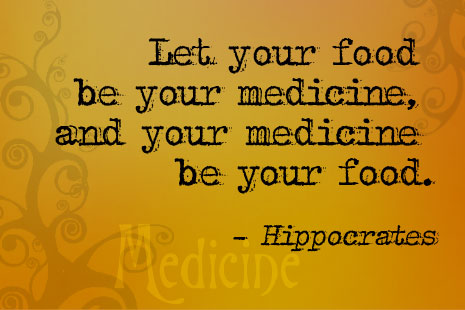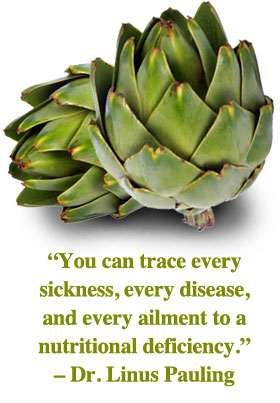7 Major Reasons To Go Organic
by Vin Miller, January 10, 2009 (retrieved from http://naturalbias.com/7-major-reasons-to-go-organic/. 11/26/11)
You may think you’re eating well by consuming vegetables and unprocessed whole foods, but they too come with some significant risks.
Health or Profit?
Like any other industry, the food industry is primarily concerned about making money. That may sound harsh and hard to believe, but when you think about it, it’s really not. The tobacco and alcohol industries don’t seem too concerned about helping to kill hundreds of thousands of people each year.
This precedent set by the tobacco and alcohol industries makes it easy for the food industry to prioritize profit in a way that significantly affects our health. However, food is essential for health and survival. Contamination of this basic requirement for life has significant consequences that are far more subtle than those resulting from alcohol and tobacco use.
While even organic food has it’s own share of issues, it’s a major step in the right direction toward optimal health and brings back the emphasis on quality. Just as the food industry has the choice to put unhealthy food on the market, you have the choice to not put it on your plate. Here are 7 reasons why you should make this choice and buy organic as often as possible.
1. No Chemical Toxins
Your cells are the foundation of your health. Chemical toxins cause them to malfunction and sometimes damage or kill them. They also cause your detoxification system, primarily consisting of your liver, kidneys, lungs, colon, and skin, to work overtime and eventually malfunction as well. Recent cancer rates are as high as one out of every two people and chemical toxins are a leading cause.
Conventionally grown crops are sprayed with significant amounts of pesticides, herbicides, fungicides, rodenticides, and chemical fertilizers. These chemicals are designed to kill other forms of life and you may very well be eating them. Don’t think you’re safe just because you rinse your food. While it does help, many of the chemicals are deeply absorbed and cannot be rinsed off.
When your body can’t properly process a toxin, it’s often stored in body fat to keep it out of circulation. If needed, your body will produce additional body fat to do so. This shouldn’t be your primary concern, but for some of you, I know it will get your attention.
2. More Nutrients
There is plenty of scientific evidence showing organic food to have far greater nutrient levels than conventionally farmed food. However, there are also many flawed research studies that are used by the food industry to suggest otherwise. To understand why this research shouldn’t be trusted, read the truth about scientific research.
We all know that crops get their nutrients from the soil. By ignoring the laws of nature and over farming their land, conventional farmers deplete there soil. Common sense should tell you that crops grown in depleted soil will have low nutrient quantities. Conversely, organic farming involves crop rotation and other practices that replenish the soil and keep it full of nutrients for the crops to absorb.
3. It’s Good For the Planet
The chemicals used in conventional farming kill many of the microorganisms in the soil that keep it healthy. And as I just said, conventional farmers over farm their land and deplete it of it’s nutrients. Crops that are grown in low nutrient soil are obviously less healthy. As a result, they’re more susceptible to weed overgrowth, insects, and other predators. This calls for the use of even more chemicals and fertilizers.
Although putting these chemicals into the earth is bad enough, the soil becomes more and more depleted until it is so devoid of life and nutrients that it can no longer be farmed on at all. American food corporations are already buying land to farm in other countries because of this. Eventually we will run out of land to farm. What will happen then?
4. It’s Not Genetically Modified
Scientifically, the thought of genetically altering plants to grow faster, taste better, and be more resistant to disease sounds like an absolutely amazing breakthrough. It is indeed, but that doesn’t mean it’s good for you. By eating genetically engineered crops, we are introducing DNA into our bodies that we’ve never encountered during our millions of years of evolution. Who do you trust more, science or nature?
Many well respected scientists are strongly opposed to genetically modified foods because there simply isn’t enough scientific proof that it’s safe. There is also plenty of research surfacing that shows genetically engineered foods to be quite dangerous. Furthermore, there is astounding evidence that the FDA went ahead and prematurely approved the introduction of genetically modified foods despite all of this.
Many of the foods you buy in the supermarket are genetically modified or have genetically modified ingredients in them, especially soy products. Because food manufacturers are not required to tell you this, you have no way of knowing unless you buy certified organic. For more chilling and disturbing information on this topic, I highly recommend Seeds of Deception by Jeffrey Smith.
5. Healthier Livestock
Most conventional farmers do not feed their livestock their natural diets. Cows simply don’t eat grain in nature. They eat grass. Furthermore, the feed is grown with chemicals and sometimes contains fillers such as cardboard, cement dust, and animal carcass to make it cheaper. This results in unhealthy livestock that are routinely fed antibiotics as a preventative measure to keep them from getting sick. Many animals are also fed synthetic hormones to make them grow faster or to increase their production.
Things get even worse when you consider the conditions these animals are raised in. Hundreds or thousands of them crammed into indoor warehouses, unable to move, forced to live in their own fecal matter, and never seeing natural sunlight.
Buying certified organic animal products ensures that the animals they came from were raised humanely and were not fed any chemicals, drugs, or hormones. By eating non organic animal products, you are consuming the same chemicals, drugs, and hormones that they did.
6. No Irradiation
We all know that the radiation produced by x-ray machines can be dangerous. This is made obvious by the heavy protective garments that have to be worn and the shielded room used by the technician. Food irradiation zaps food with 150 million times as much radiation. How much nutrition do you think is left in the food after that?
The purpose of irradiation is to kill pathogens, but the ironic part is that it doesn’t kill all pathogens and certainly destroys most of the food’s good qualities. Irradiation also changes the chemical structure of the molecules within the food and can transform them into mutagenic and carcinogenic compounds that promote cancer.
7. It’s Certified
The USDA has rigid requirements that must be met before a farmer or food producer can use the USDA’s certified organic emblem. Their soil is thoroughly tested and must be free of chemical exposure for at least three years. The food they produce must be free of any chemical or genetically engineered ingredients and must not have been raised or produced with any drugs or hormones. It also can’t be irradiated.
Aside from buying directly from a farmer that you trust, buying USDA certified organic food is the best chance you have of knowing your food comes from a high quality source. Be aware that there are plenty of bogus certification agencies that are making it easier and easier to sell food as certified organic. If it’s certified by anyone other than the USDA, be wary. Be especially skeptical of products labeled as natural because there’s absolutely no regulation for it at all.
The Payoff
Although organic food is more expensive, you can’t put a price tag on good health. Besides, by buying less junk food, you will have plenty of extra money left over to put towards high quality organic food. Although occasional consumption of conventionally farmed food is not likely to do much harm, eating it at every meal amounts to an enormous amount of contaminated food that you put through your body.
Over the course of weeks, months, years, and decades, the toxins accumulate and the consequences can be drastic. If and when you reach the point of disease, you may wonder why you’re suddenly sick. However, it wasn’t sudden at all and maybe that’s something you should consider next time you’re buying food.
More Info
The most thorough and convincing resource I’ve seen regarding food quality and organic versus non organic food is You Are What You Eat by Paul Chek. If you have even the slightest doubt about organic food, I can’t recommend this resource highly enough. I guarantee that you will be shocked by what you’ll learn and that you’ll not want to buy conventionally farmed food again.





